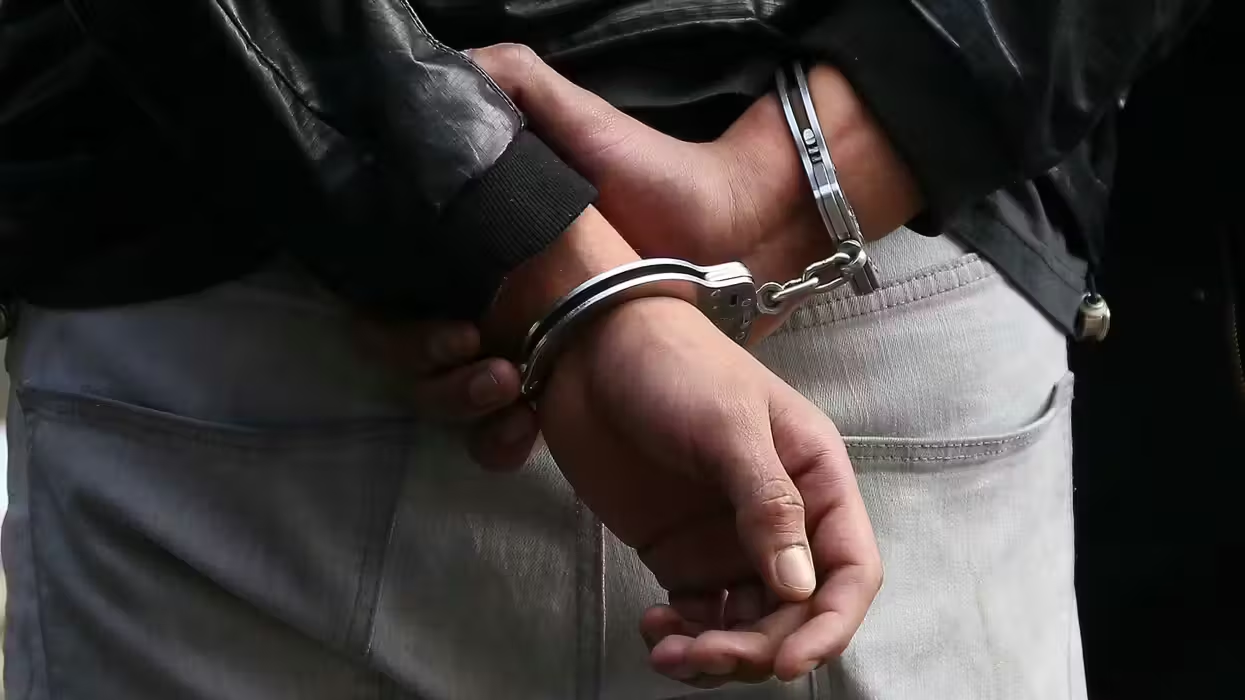
© 2025 Blaze Media LLC. All rights reserved.
The Crisis In Cyprus: Bank Shutdown Goes Into Second Week, Untold Amount of Cash Has Fled Country
March 26, 2013
All banks will remain closed until Thursday.
Banks across Cyprus remain locked Tuesday after financial authorities extended the country's bank closure, fearing worried depositors will rush to drain their accounts. The shut-down is hammering businesses, which have been without access to their funds for more than a week.
All but two of the country's largest lenders had been due to reopen Tuesday, after being shut since March 16 while politicians figured out how to raise the funds necessary for Cyprus to qualify for an international bailout. Under the deal for a €10 billion ($12.94 billion) rescue clinched in Brussels early Monday, Cyprus agreed to slash its oversized banking sector and inflict hefty losses on large depositors in troubled banks.
After initially saying most financial institutions would reopen Tuesday, the country's Central Bank made a surprise reversal just before midnight, announcing all banks would remain closed until Thursday.
ATMs have been operating throughout the closure, but many have quickly run out of money. A daily withdrawal limit of €100 has been imposed on ATMs of the two largest lenders, Bank of Cyprus and Laiki. An increasing number of businesses have stopped accepting credit or check payments, insisting on cash only.
Moreover, during this entire confusing ordeal, an untold amount of money has fled the small Mediterranean country.
"No one knows exactly how much money has left Cyprus' banks, or where it has gone," Reuters notes.
"The two banks at the centre of the crisis - Cyprus Popular Bank, also known as Laiki, and Bank of Cyprus - have units in London which remained open throughout the week and placed no limits on withdrawals. Bank of Cyprus also owns 80 percent of Russia's Uniastrum Bank, which put no restrictions on withdrawals in Russia," the report adds.
As many of you undoubtedly know, Russian cash accounts for nearly half of all Cypriot deposits.
"[W]hile some money was withdrawn over a period of several days it was in the order of millions of euros, not billions," Reuters reports, citing former Laiki vice chairman Chris Pavlou.
However, German Finance Minister Wolfgang Schaeuble, who says he is looking into the capital flight issue, declined to provide Reuters with figures.
The bank closures have hammered businesses, who have found themselves unable to pay suppliers or fulfill orders. The retail market is sharply down too, shop owners say, with customers unwilling to spend on anything but the basics while they have limited access to cash.
"The continuation of this uncertainty is pushing the economy deeper into recession, some businesses could possibly lose their clients, but we're hopeful once this situation is sorted out, the market can rebound quickly," said Michalis Pilikos, head of the Cyprus Employers and Industrialists Federation.
Scores of angry students from a left-wing student union gathered outside Parliament, screaming "People, fight back, they're sucking your blood."
Under the new Cyprus bailout plan, the bulk of the funds will be raised by forcing losses on accounts of more than 100,000 euros in the country's second- largest lender, Laiki, with the remainder coming from tax increases and privatizations.
The bank will be dissolved immediately into a so-called bad bank containing its uninsured deposits and toxic assets, with the guaranteed deposits being transferred to the nation's biggest lender, Bank of Cyprus.
Deposits at Bank of Cyprus above 100,000 euros will be frozen until it becomes clear whether or to what extent they will also be forced to take losses. Those funds will eventually be converted into bank shares.
It's not yet clear how severe the losses will be to Laiki's large bank deposit holders, but the euro finance ministers noted the restructure expected to yield 4.2 billion euros overall. Analysts have estimated investors might lose up to 40 percent of their money.
--
Follow Becket Adams (@BecketAdams) on Twitter
The Associated Press contributed to this report.
Want to leave a tip?
We answer to you. Help keep our content free of advertisers and big tech censorship by leaving a tip today.
Want to join the conversation?
Already a subscriber?
more stories
Sign up for the Blaze newsletter
By signing up, you agree to our Privacy Policy and Terms of Use, and agree to receive content that may sometimes include advertisements. You may opt out at any time.
Related Content
© 2025 Blaze Media LLC. All rights reserved.
Get the stories that matter most delivered directly to your inbox.
By signing up, you agree to our Privacy Policy and Terms of Use, and agree to receive content that may sometimes include advertisements. You may opt out at any time.






